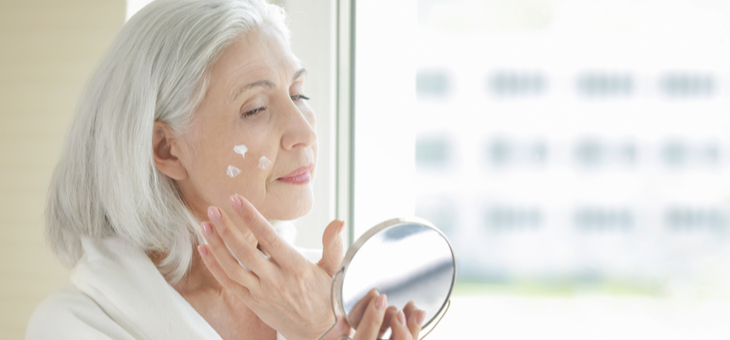As we age, our lifestyles and bodies change, but it doesn’t have to be for the worse. Here are nine tips on how to control your own ageing process and make the most of your later years.
•••
Dry skin
Factors such as long and hot showers, smoking or drinking alcohol can cause dry skin. Make sure you drink eight cups of water each day, have shorter, warm showers and don’t shy away from using oil-based moisturisers on your whole body and face.
Easing aches and pains
Our joints naturally become drier as we get older, making us more sensitive to joint pain and stiffness. Keeping them moving with low impact activities like yoga, tai-chi and swimming can help to keep them flexible and ease the aches of older age. However, if your mobility is impacted by joint stiffness, or pain lasts for prolonged periods of time, you should seek medical advice as it may be beneficial to rest those joints.
Fading memory
While memory may naturally decline in some people as they age, there are steps we can take to keep our minds sharper for longer. Regular exercise, a balanced diet and seeing family and friends are shown to keep your brain alert. Meditation, laughter, hydration, getting enough sleep and eating certain foods also help to maintain brain function and memory.
Muscle loss
While many of us assume muscle loss as a natural part of ageing, much of it is lost simply because we stop using it. Getting a minimum of 30 minutes of exercise each day is essential to maintaining muscle mass. Low impact exercises such as swimming, palates, yoga, light weights and even gardening, will help to maintain muscle mass.
Reduce wrinkles
We all know that wrinkles are a natural and somewhat unavoidable part of ageing. However, factors like sun exposure and smoking can make them worse. In fact, according to the Daily Mail, UV rays cause 80 per cent of skin ageing. Because of this, the most important thing you can do to reduce wrinkles is to prevent them from developing by wearing sunscreen every day. Other products, such as prescription retinoids and moisturizers, may help to reduce the appearance of wrinkles but they can take weeks or months to make a noticeable difference, so patience is required.
Loneliness
Feeling lonely is a normal part of ageing for some people, as we tend to talk to fewer and fewer people after retirement. If you have time on your hands, consider volunteering for a charity or joining a community group. Maintaining relationships with family, friends and neighbours is also important, even a quick text sent here and there will make a difference. If you’re looking for more consistent company, consider adopting or fostering a pet. There are thousands of cats and dogs across the country waiting for a friend like you.
Disrupted sleep
While older people will likely find it harder to get to sleep, experience more disruption and are at greater risk of sleep disorders, our need to snooze doesn’t change as we age. Factors, like high blood pressure, or coffee and alcohol consumption, may disrupt your sleeping patterns. Some lifestyle changes, food and teas may make it easier to have a good night’s rest, although you should seek medical assistance if symptoms continue.
Gaining weight
Gone may be the days of eating as you please and not gaining an ounce, but, luckily, maintaining a healthy weight is still within our control. Prioritising vegetables, fruit and lean meats in our diets, over carbohydrates and saturated fats, will help to keep you trim and healthy.
Lagging libido
Conditions such as erectile dysfunction and vaginal dryness become more common with age. However, over-the-counter products, accompanied by lifestyle changes, such as increased exercise, can help to overcome these challenges. Remember, exercise also boosts your sex hormones, which helps maintain lines of communication with your partner.
Do you have any tips to stay as young as possible in mind and body?
If you enjoy our content, don’t keep it to yourself. Share our free eNews with your friends and encourage them to sign up.
Related articles:
13 ways to sharpen your mind
Are sex problems between the ears?
Choosing a companion dog

